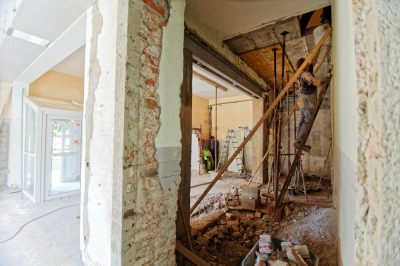Thinking about what happens after you’re gone isn’t exactly anyone’s idea of fun—but for blended families, it can be especially complicated. Second marriages, stepchildren, and shared assets all add layers that can create tension if things aren’t clearly laid out. That’s why estate planning isn’t just important—it’s essential.
In Brisbane, where more families are navigating life after remarriage, getting your estate in order means more than just drafting a basic will. It’s about making sure your wishes are respected and your loved ones aren’t left sorting out confusion or conflict. This is where working with experienced estate lawyers Brisbane comes in. They can help you put together a plan that’s legally sound and tailored to your family’s unique setup—avoiding the common pitfalls that often lead to disputes.
This article explores practical steps Brisbane couples can take now to reduce the risk of future conflicts and ensure their estate is handled exactly how they want, with peace of mind for everyone involved.

Why Estate Disputes Arise – It’s Not Just About the Money, Mate
Blended families, which often involve second marriages and stepchildren, face a unique set of challenges when it comes to estate planning. And it’s not just about the money, although that’s a big part of it. One of the biggest tension points is the perceived inequality between biological children and stepchildren. Even if you intend to treat everyone fairly, feelings of resentment or jealousy can arise. For example, imagine a scenario where a husband leaves a larger share of his estate to his biological children from a previous marriage, which leaves his stepchildren feeling slighted. It happens, believe me.
Additionally, ex-spouse entitlements can muddy the waters. Child support obligations or agreements made during a previous divorce can impact how assets are distributed and cause further conflict. Think about it: you live in Queensland, maybe out in Ipswich or even closer to the city in Paddington, and your ex-spouse feels like they are entitled to more assets from your estate. It’s a recipe for disaster, right?
Then there’s the emotional layer. For a lot of families, this is something you just can’t account for, but needs to be dealt with sensitively. Inheritance isn’t just about finances; it’s also tied to feelings of love, belonging, and family history. When these feelings are disrupted, estate disputes can become deeply personal and emotionally charged. It can get nasty, really fast.
In Queensland, there’s this thing called Family Provision Claims. It’s part of the law and it allows eligible people, like children (including stepchildren in certain circumstances – we’ll get to that), to challenge a will if they feel they haven’t been adequately provided for. This is a common trigger for disputes, highlighting the importance of addressing these potential claims proactively. Sort of like putting out fires before they start, yeah?
Legal Overview in Brisbane and Queensland – The Nitty Gritty
Alright, let’s talk Queensland law, but in a way that actually makes sense, not like some dusty old textbook. When it comes to estates, there are a few key pieces of legislation that govern what happens to your assets after you’re gone. First up, there are laws governing intestacy, that is, dying without a will. If you don’t have a will, the government has a set formula for distributing your assets, and it might not align with your wishes, especially in a blended family situation. So, get a will! Seriously.
Then you’ve got the laws around wills themselves, which dictate how you can legally specify who gets what. But here’s the thing, even with a will, disputes can still arise. That’s where the Queensland Civil and Administrative Tribunal (QCAT) or the courts come in. They’re responsible for resolving estate disputes, which can be a lengthy and costly process. Think thousands of dollars, maybe even tens of thousands, and years of stress.
Now, a big one in Queensland, as mentioned before, is the Family Provision Application. This allows certain people, like children (including stepchildren in some cases) and spouses, to challenge a will if they feel they haven’t been adequately provided for. It’s important to note that stepchildren don’t automatically have the same rights as biological children, but they can still make a claim if they were financially dependent on the deceased. A good estate lawyer in Brisbane will know all the ins and outs of this.
Essentially, what this means is that Brisbane couples in blended families need to have a really comprehensive legal plan in place. It’s not enough to just have a basic will; you need to consider all the potential challenges and take steps to minimise the risk of disputes. It’s about protecting your family, and also protecting your hard-earned wealth.
Key Strategies to Prevent Estate Disputes – The Practical Stuff
So, how do you actually prevent these disputes from happening in the first place? Here are some strategies that Brisbane couples can use to protect their families, and hard earned wealth. Think of it as future-proofing your family’s peace of mind.
A. Develop a Clear and Current Will – No Brainer, Really
Creating or updating your will after remarriage is absolutely crucial. Your old will might not reflect your current wishes, especially if you’ve acquired new assets or have new family members to consider. Be specific with your bequests to avoid ambiguity. Instead of saying “I leave my jewelry to my daughters,” specify which pieces of jewelry each daughter will receive. My auntie, she left a generic statement like that in her will, and her daughters fought for months over a single necklace! A mess, truly.
B. Use Testamentary Trusts – Control After You’re Gone
Testamentary trusts are essentially trusts that are created in your will and only come into effect when you die. They offer more control over when and how your beneficiaries receive their inheritance, especially useful for younger stepchildren or beneficiaries who might be vulnerable or have trouble managing finances. For example, you could set up a trust that releases funds to a stepchild at certain ages or for specific purposes like education or buying a home.
C. Consider Binding Financial Agreements (BFAs) – Not Just for Divorces
BFAs, also known as prenuptial or postnuptial agreements, can work alongside your will to clarify how assets will be distributed in the event of death or divorce. In second marriages, BFAs can be particularly useful for protecting assets you want to leave to your children from a previous relationship, while also ensuring your current partner is provided for. It’s like a safety net, making sure everyone is looked after fairly. It’s not romantic, but it is practical.
D. Communicate with Family Members – Awkward, But Necessary
Transparency is key to setting expectations and minimising surprises. Consider having family meetings to discuss your estate plans and address any concerns or questions. You could also use a professional mediator or counsellor to facilitate these discussions and help everyone feel heard. Sure, it’s awkward, but it’s way less awkward than fighting in court. Think of it as ripping off a band-aid – painful for a second, but better in the long run.
E. Appoint an Impartial Executor – Keep Things Fair
The executor is the person responsible for managing your estate and carrying out the instructions in your will. It’s crucial to appoint someone who is neutral and unbiased. Appointing one child over another can create resentment and lead to accusations of favoritism. A professional executor, like a lawyer or trustee company, can ensure that your estate is administered fairly and impartially. It can be a weight off your shoulders knowing someone professional is handling everything.

Conclusion: Protect Your Family’s Future
Proactive estate planning is absolutely critical in blended families here in Brisbane. There are all kinds of things at stake, so it really is worth the investment to get this right. A recent case down at the Brisbane Supreme Court highlighted just how messy things can get when families don’t plan properly – it involved a multimillion-dollar estate, stepchildren, and allegations of undue influence. Avoid that drama!
By developing a clear will, considering testamentary trusts, communicating openly with your family, and seeking professional advice, you can prevent conflicts and ensure your wishes are honoured. It’s not about avoiding difficult conversations; it’s about taking steps now to protect your loved ones in the future.
If you’re in Brisbane and ready to get your estate plan in place, reach out to a trusted estate lawyer today. Ask around for recommendations – word of mouth is always a good way to find someone reputable. It’s scary to think about, but you can prevent conflict through good planning, and that’s worth everything.








